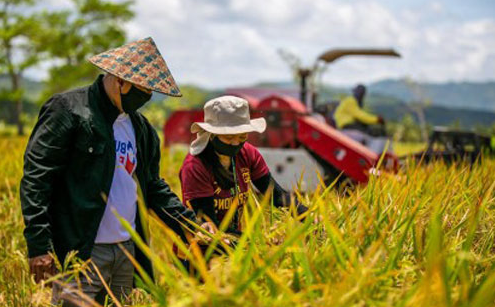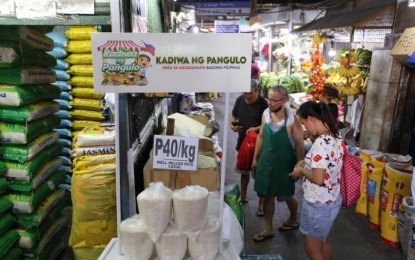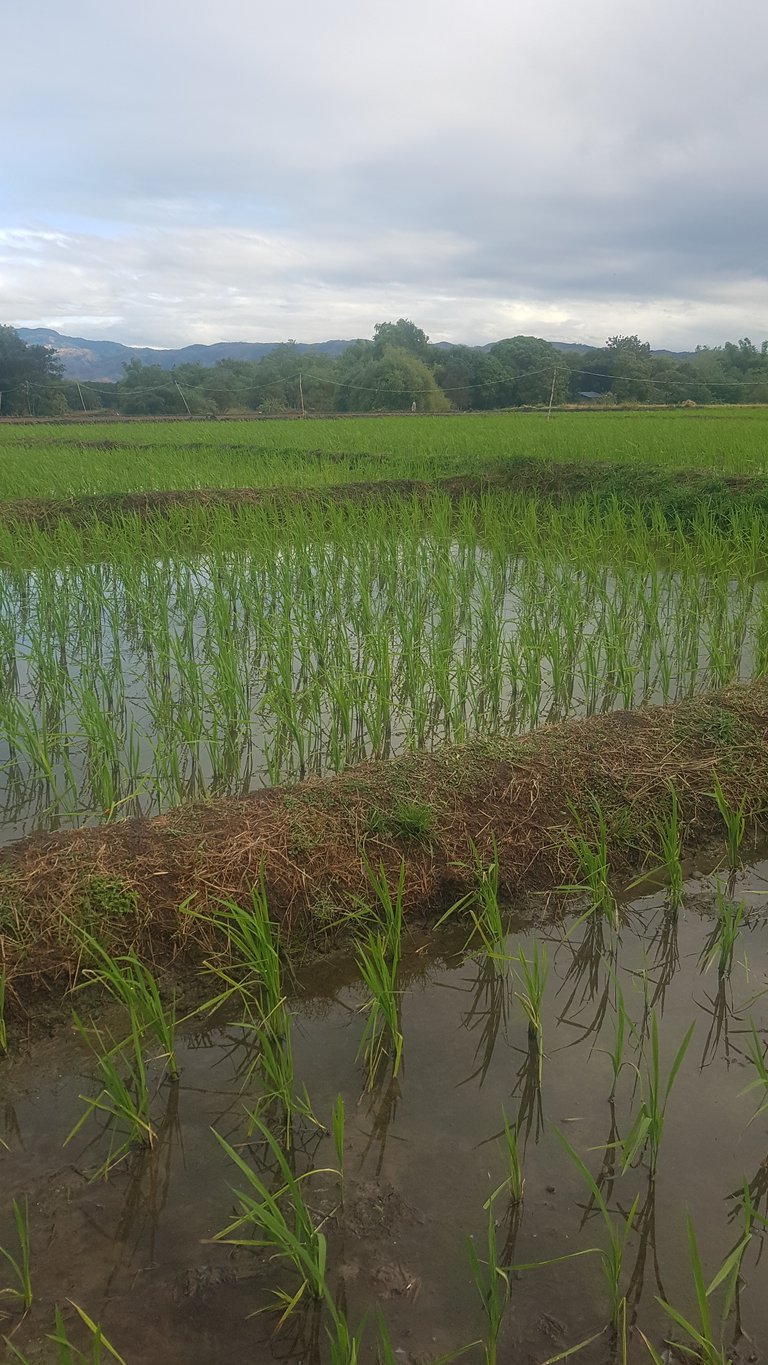
Short answer, I think, is unlikely. In the last few years, rice millers have faced a sudden and very unique challenge never foreseen, whereas their own business was competing with a formidable opponent. It's the government itself.
The current administration, as promised in the election, wants the price of rice to be as cheap as possible, disrupting the rice industry itself. The solution is simple, launch a record highs of importing rice never seen in decades.
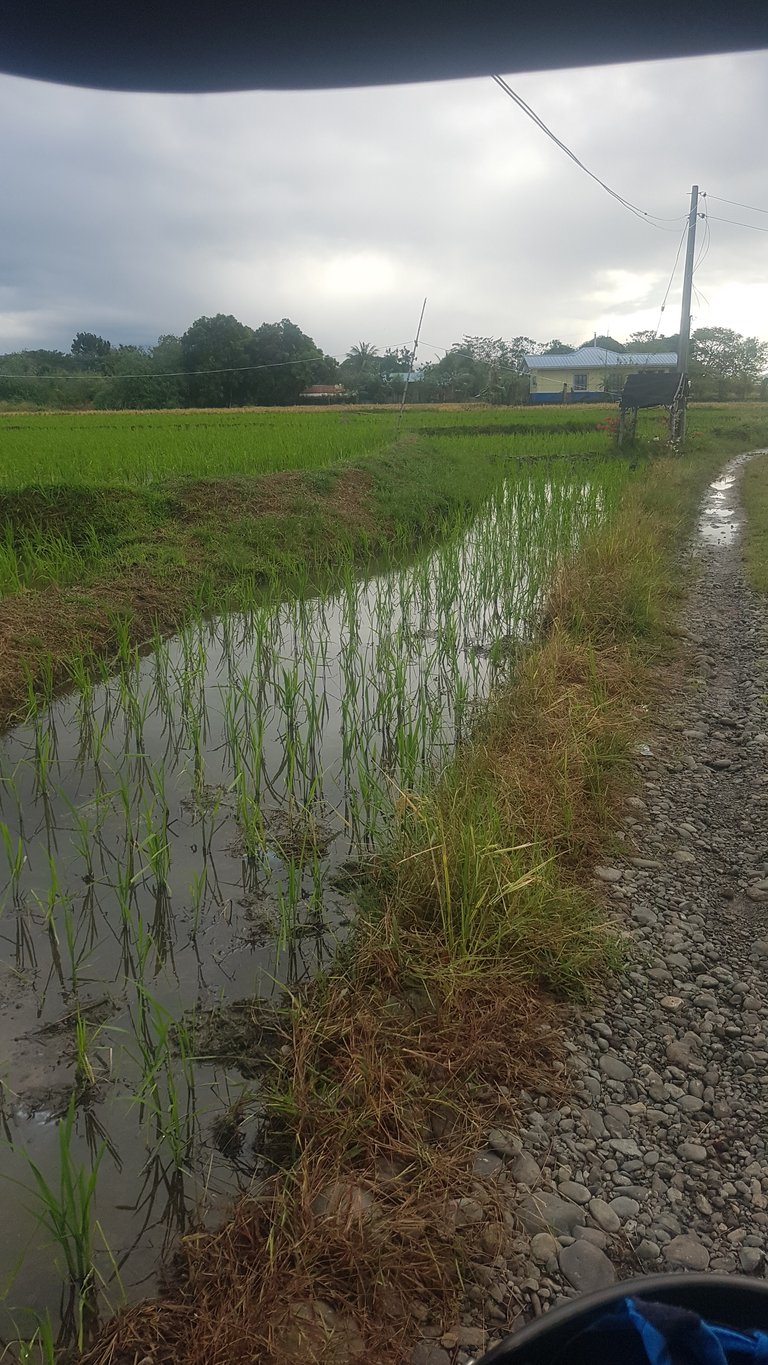
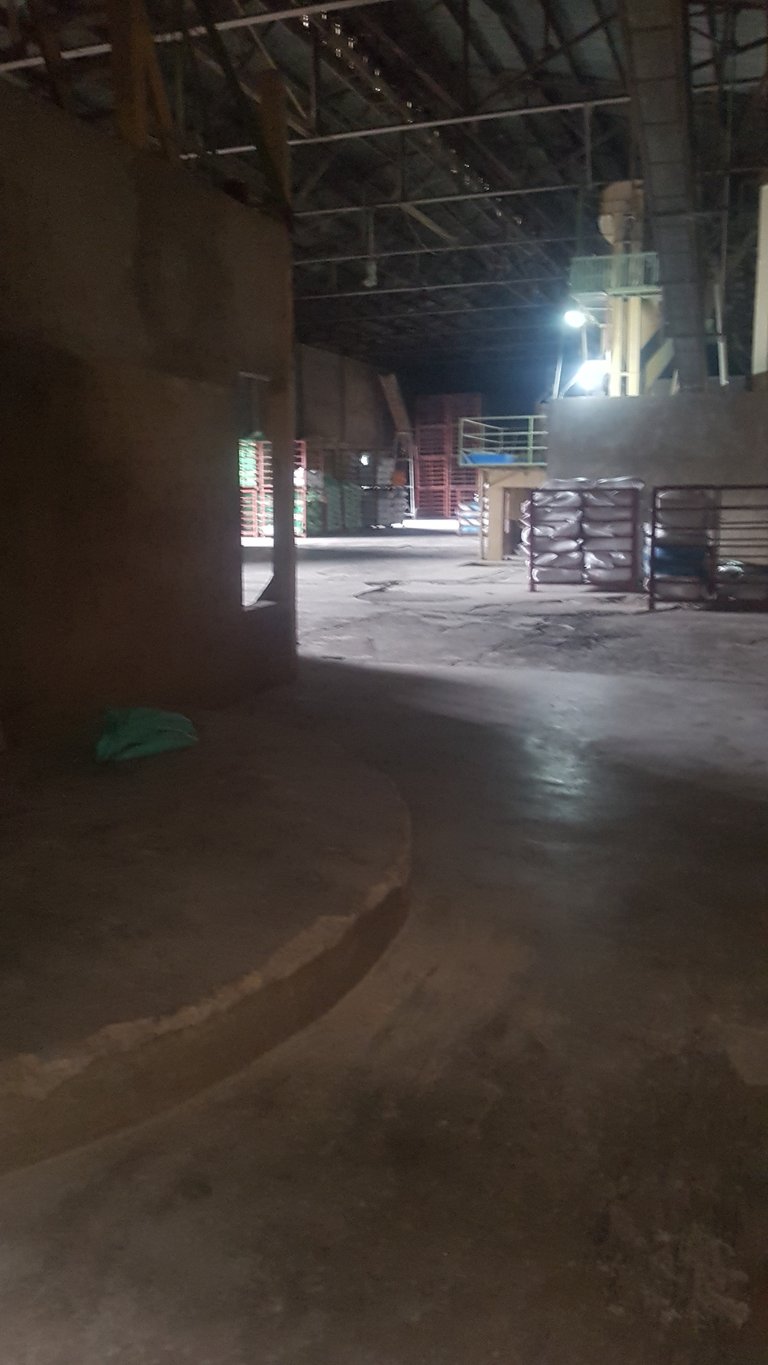 inside a rice mill
inside a rice mill
Rice Millers was the first blood...
Rice Mills is engaged in buying newly harvested rice (fresh or dry), drying it, stocking it for future use, milling it based on demand, and then distributing it to wholesalers and retailers. This is a long process that gives jobs and opportunities, contributing to the local economy. Importing rice directly by wholesalers disrupts the value chain of the industry that includes not only farmers but also rice mill employees, truckers, traders, and, most importantly, the local economy that depends on the industry.
Not all Millers are importers...
Most millers do not import rice. The policy of importation is open for all. Anyone with the capacity to buy bulk supplies abroad can do so. That is why big supermarkets, the last in the value chain, import rice for retail.
Millers were confused about what price they would buy from the farmers so that they could still have a margin when the final product is produced. The case is that for the last 2 years, millers ended up buying newly harvested rice that is not profitable or will be at a loss when milled at the current market prices because of the changing policies about rice importation. Just recently, the tariff on imported rice was reduced by half; this caused the imported rice to become much cheaper. The timing is not favorable for millers who had already bought rice from the farmers at the price that is not profitable for the current market, due to the influx of imported rice.
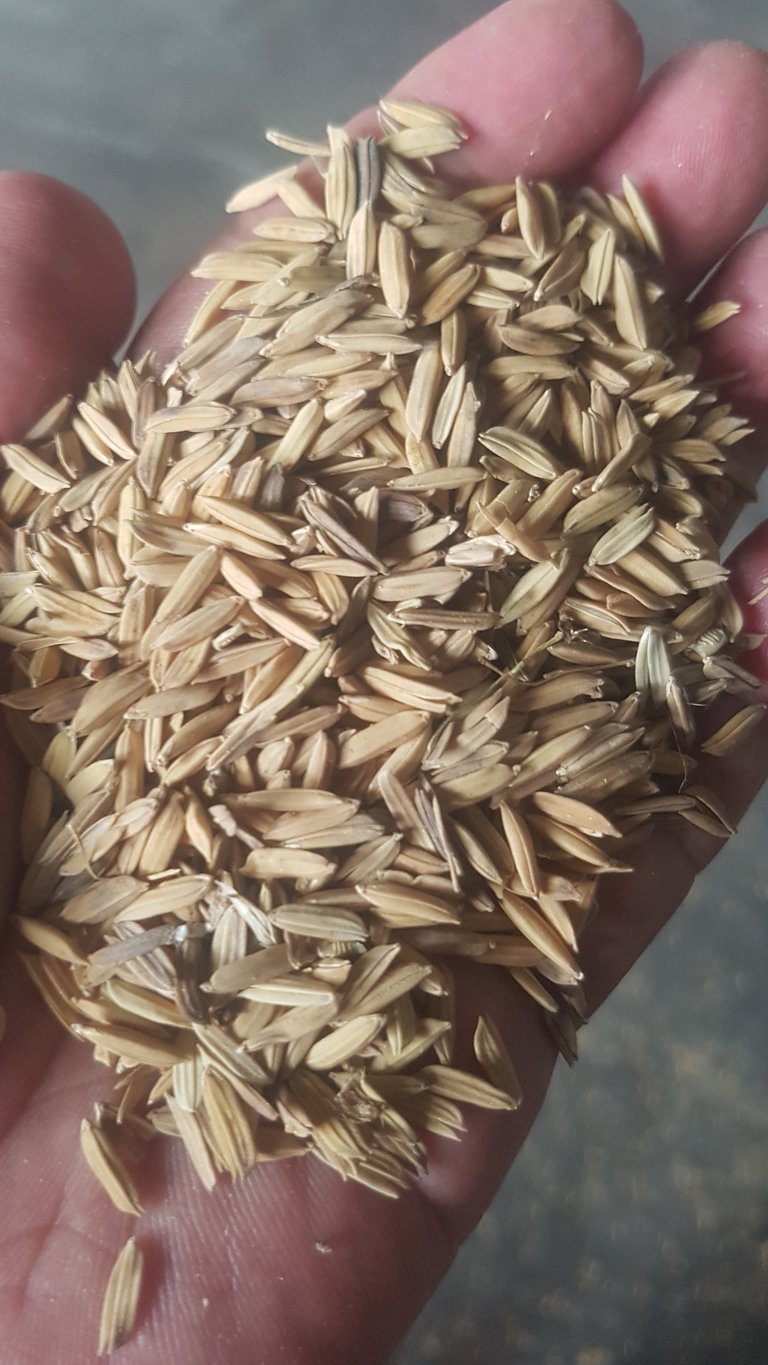
How about the farmers?
Contrary to the most logical conclusion and what the news was always saying, that imported rice will hurt the farmers; that is unlikely the case. Farmers now received free seeds, fertilizers, and cash grants from the government. This was implemented from the previous administration to mitigate the effect of the law that was passed for open importation of rice. These subsidies greatly reduce the operating cost of farming rice, and because millers bought rice at a high price, farmers are content with what is happening with the rice issues. At least for now.
What is running in the background? Who profited the most?
Millers are the most affected by the current policies about rice. Adjusting to these challenges is all part of having a business. Importing rice is not easy. Someone should have the capacity and network to buy a bulk quantity of this perishable item. Rice millers have this capacity. They have warehouses, trucks, and distribution setups.
There are some rumors that rice in the market is a mix of local and imported rice. You really can't see the difference even with a trained eye. And the situation is that even with the record high
importation, the price of rice in the market was barely moved. You can hardly see rice prices in the market based on the actual import price of it. Because millers hit hard due to importation, rumors said the current situation is that by mixing imported with the local rice, they can lower the price of the final product and still be competitive in the market. It's like they are doing cost averaging of their rice inventories. Well, that is just a rumor, and I don't go further to know if it is legal to do so or not. Basically, if that's the case, millers are doing this not for profiting, but for surviving and still being in business. This scenario makes sense, because some importers may want quick and big profits and simply sell imported rice to millers who have the capacity to store, remill, and distribute rice.
Worst-case scenario...
Of course, the worst case will be no more rice millers, meaning no one will buy farmers produce and just rely on imported rice so everyone can still enjoy rice. No more local industry, and farmers will sell their land. The country's dream of self-sufficiency in rice will be a story that never happened.
Farmers were used to the low price of their rice produced. Rice farming is not a very profitable venture. One hectare of land can net a profit between 35-60% of the total operating expenses depending on yield and current farm gate price. In comparison, minimum wage earners in the country still earn more than the farmers, unless those farmers have more than 5 hectares of land devoted to rice farming.
In the long run, because farming can barely support a family, many sell their land and use the money to find better opportunities abroad and in the metropolis.
Filipinos love rice; there is no meal without it. Breakfast, lunch, dinner, and in-between. On every occasion, rice is an inevitable food. Politicians always use this to instigate people by promising a lower price and giving bureaucratic opportunities to make money. But for how long?… Imported rice will soon increase in price. Land once devoted to farming is now sold to developers to build housing projects, solar plants, etc. Once land is converted, there is no turning back.
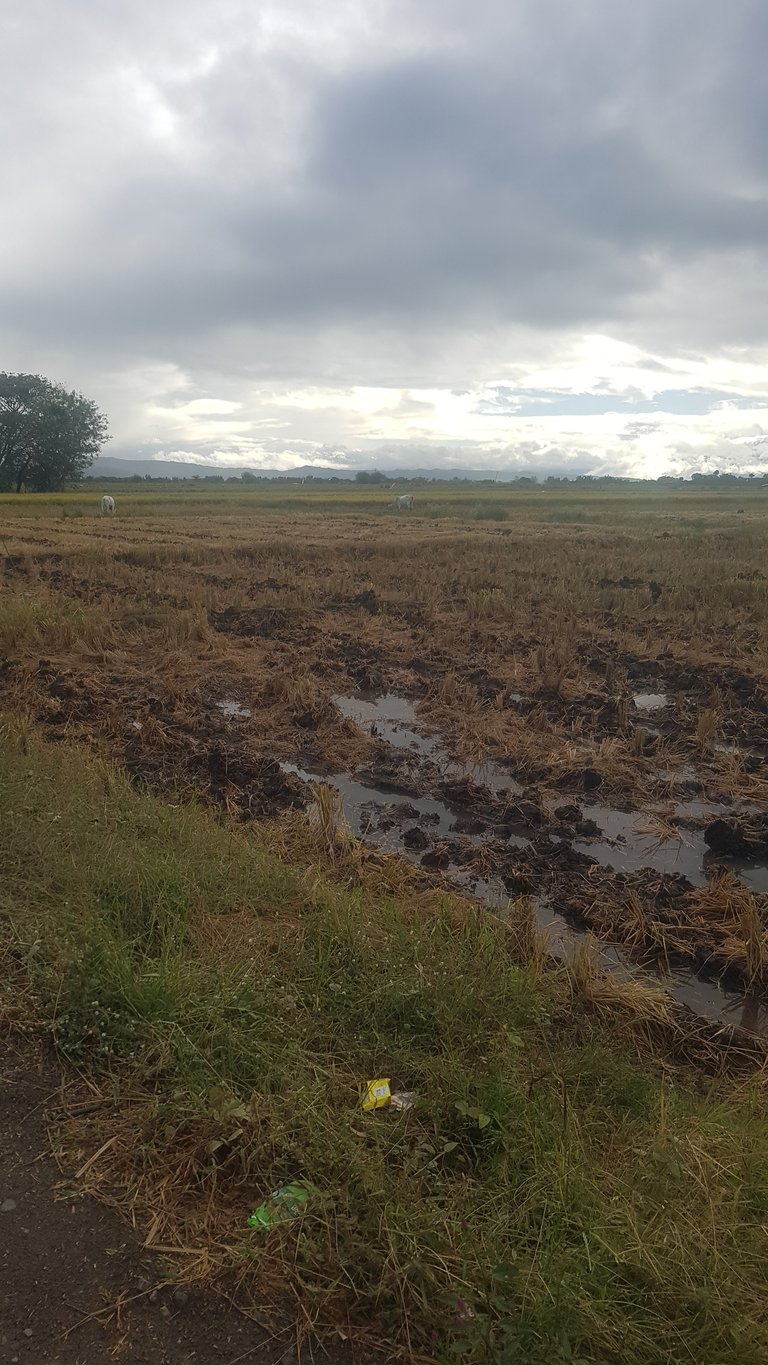
Current situation and the future...
Right now, officials justify their massive rice importation; the usual typhoons, floods, and pests are the reasons. Millers are stressed; they have local rice stocks, and getting imported rice can prolong the inevitable closure. Consumers still wonder why the price of rice barely goes down in price, and the farmers, well, they are getting old, and no one from the family wants to continue something that barely survives a family.
The gate is open; anyone can import rice. It's just a matter of time before the local rice industry will collapse. Someone may say that the industry is one or two major typhoons away that will wipe out the majority of rice crops before collapsing. This will be a justification for a massive importation, and when that happens, there is no turning back.
Maybe in this coming typhoon season in June? Why not...!
In the long run, farmers will be the major casualty here. Millers will simply shift to become wholesalers of imported rice and will not be millers anymore. No one will buy from the farmers anymore. Farmers will stop planting rice. The country will be forever dependent on other countries for its rice-hungry people.
•
•
Hello! If in some way you're on Facebook please like my page. Well, it's all about coins and banknotes, collection stuff, you know. 😉 Thank you!
